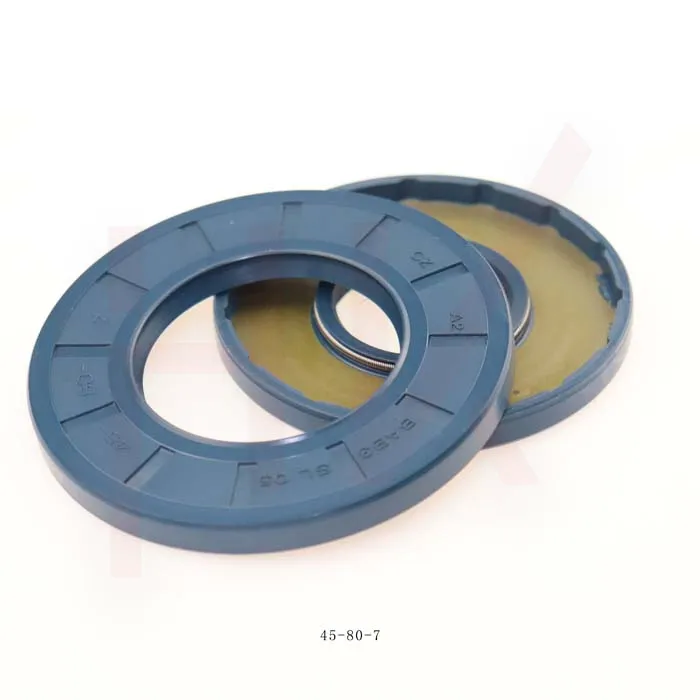Dec . 05, 2024 15:11 Back to list
oil pump seal
Understanding Oil Pump Seals Importance, Types, and Maintenance
Oil pump seals play a crucial role in the functioning of various machinery that relies on hydraulic systems or is powered by internal combustion engines. These seals are designed to prevent the leakage of oil from the pump, ensuring efficient operation and longevity of mechanical equipment. In this article, we will explore the importance of oil pump seals, the different types available, and their maintenance requirements.
The Importance of Oil Pump Seals
Oil pump seals are essential components in preventing oil leakage from pumps. Leaks can lead to a loss of fluid, which subsequently reduces the efficiency of the machinery and may cause damage due to inadequate lubrication. For instance, in a vehicle, a leaking oil pump seal can lead to engine overheating and a significant drop in performance. Therefore, maintaining oil pump seals is vital for the smooth operation of any machinery that utilizes oil pumps.
Beyond performance, oil pump seals also contribute to overall safety. Oil leaks can create hazardous situations, especially in industrial settings. For example, spilled oil can lead to slippery surfaces, posing a risk of accidents. By effectively sealing the oil within the pump, these seals help maintain a safer working environment.
Types of Oil Pump Seals
Oil pump seals come in various designs and materials, tailored to meet specific requirements based on the application. Here are some common types
1. O-Ring Seals These simple circular seals are made from elastomers and are widely used due to their effectiveness and ease of installation. O-rings can accommodate a range of applications, providing reliable sealing under moderate pressures.
2. Lip Seals Also known as radial shaft seals, lip seals consist of a flexible lip that rides against the shaft to create a tight seal. These seals are particularly effective in high-pressure applications and are commonly used in automotive oil pumps.
3. Mechanical Seals Used primarily in high-pressure or high-temperature environments, mechanical seals consist of two mating surfaces that create a barrier against leaks. They are commonly found in industrial machinery and high-performance engines.
4. Cup Seals These seals are designed like a cup with a lip that fits over the component being sealed. They are beneficial in applications where there could be significant fluid back pressure.
oil pump seal

5. Graphite Seals In applications where extreme temperatures are a concern, graphite seals may be employed due to their ability to withstand high heat. They are often used in high-performance engines and industrial pumps.
Maintenance of Oil Pump Seals
Regular maintenance of oil pump seals is crucial in preventing leaks and extending the life of the machinery. Here are some best practices to consider
1. Regular Inspections Periodically check the condition of oil pump seals. Look for signs of wear, deformation, or any fluid leakage. Early detection of problems can save significant repair costs in the long run.
2. Proper Installation Ensuring that seals are installed correctly is vital. Misalignment or improper fitting can lead to premature failure. Following manufacturer guidelines during installation can help avoid potential issues.
3. Fluid Compatibility Using the correct type of oil is essential. Some seals may not be compatible with certain oil formulations, leading to degradation of the seal material. Always refer to the manufacturer's specifications regarding fluid compatibility.
4. Temperature Control Maintaining optimal operating temperatures within machinery can extend the life of oil pump seals. Excessive heat can cause seals to harden and lose flexibility, leading to leaks.
5. Replacement Protocols Whenever a pump is serviced, consider replacing the oil pump seals as a preventative measure. A small investment in new seals can prevent more extensive damage and the associated costs.
Conclusion
Oil pump seals, while often overlooked, are integral to the efficient operation of mechanical systems that rely on oil circulation. Understanding the various types of seals available and their specific applications can help prevent leaks and ensure that machinery operates safely and effectively. By prioritizing maintenance and compliance with installation guidelines, operators can extend the life of their equipment and avoid costly downtimes, making oil pump seals a key component in the reliability of any oil-dependent system.
-
Unlocking the Potential of Hydraulic Systems with Essential Sealing Solutions
NewsAug.06,2025
-
Unleash the Power of Your Hydraulic Systems with Our Premium Seal Kits
NewsAug.06,2025
-
Specialized Hydraulic Seal Kits for Breakers, Pistons, and Presses
NewsAug.06,2025
-
Revitalize Hydraulic Systems with Premium Repair and Seal Kits
NewsAug.06,2025
-
Fortify Your Cylinders with Premium Sealing Solutions
NewsAug.06,2025
-
Elevate Hydraulic System Reliability with Specialized Seal Kits
NewsAug.06,2025
-
TCN Oil Seal Metal Ring Reinforcement for Heavy Machinery
NewsJul.25,2025
Products categories
















